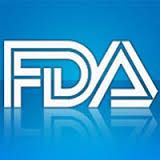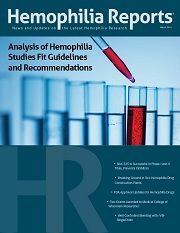Publication
Article
Hemophilia Reports
FDA Approval Updates for Hemophilia Drugs
Author(s):
Over the past few months, the Food and Drug Administration (FDA) approved several drugs for the control and prevention of bleeding episodes in patients with hemophilia. Other drug classifications granted included Orphan Drug Status and Breakthrough Therapy designation.

Over the past few months, the Food and Drug Administration (FDA) approved several drugs for the control and prevention of bleeding episodes in patients with hemophilia. Other drug classifications granted included Orphan Drug Status and Breakthrough Therapy designation.
In April, the FDA approved a recombinant factor (rFIX) product called Ixinity (Emergent BioSolutions, Inc.) for the control and prevention of bleeding episodes in patients aged 12 years or older with hemophilia B. The drug is also designed for perioperative management of hemophilia B. In Phase I and III trials, 84 percent of moderate to severe hemophilia B patients had bleeds resolved which was patient rated as “excellent” or “good.” The researchers used “excellent” to encompass dramatic response with abrupt pain relief and clear reduction in joint or hemorrhage site size, while “good” was defined as pain relief or reduction in hemorrhage site size. In “good” responses, an additional infusion may have been required for bleed resolution. The pharmacokinetic results demonstrated that Ixinity achieved similar behavior to other licensed recombinant coagulation FIX products on the market.
Another drug, ATX-F8-117 (brand name Apitope), was granted Orphan Drug Status by the FDA in June. The drug is designed to prevent or treat inhibitors in hemophilia A patients who have inhibitors or are at risk for producing inhibitors. The European Medical Agency previously granted Orphan Drug Status to Apitope in order to allow factor VIII (FVIII) inhibitor treatment to be developed.
In early September, the FDA granted breakthrough therapy designation to ACE910, a prophylactic treatment with hemophilia A patients aged 12 or older. The artificial protein is designed to bond factor proteins IXa and X — mimicking a function that FVIII completes – and act as a clotting factor. The therapy should work regardless if the hemophilia patients have developed inhibitor antibodies to FVIII. The researchers highlighted that the patients would not likely develop new FVIII inhibitors because ACE910 is so structurally different than FVIII.
Nuwiq, from Octapharma USA, was approved by the FDA for use as an recombinant factor for adults and children with hemophilia A. The drug is designed for on demand treatment and control of bleeding episodes as well as perioperative management of bleeding. The FDA approval was based on a study of 32 adults where prophylactic efficacy reached an “excellent” or “good” rating in nearly all (92 percent) of patients. And again, for nearly all (94 percent) of patients, on demand treatment with Nuwiq was rated “excellent” or “good.”






